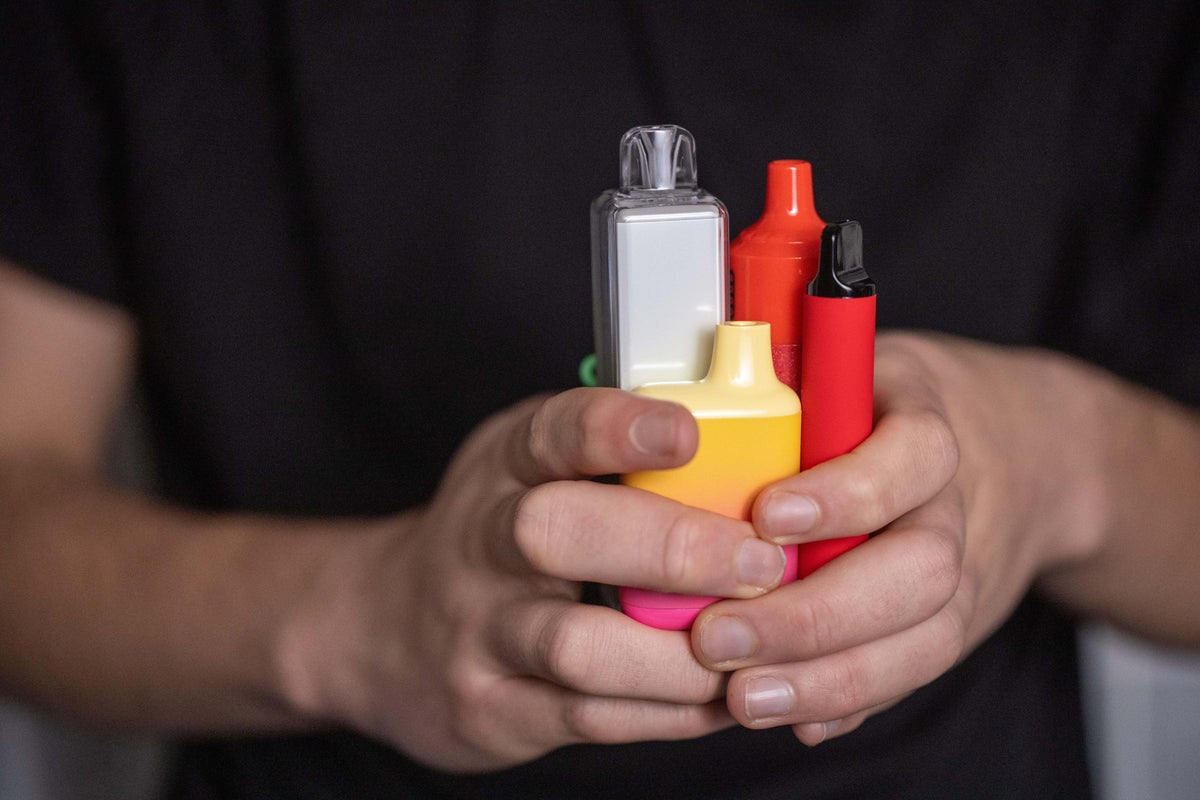Health
Surge in Vapes Contaminated with Spice Sends UK Children to Hospital

A troubling trend in the UK has emerged as an increasing number of secondary school children have been hospitalized after using vapes contaminated with the synthetic drug known as Spice. This lab-made substance mimics the effects of cannabis but carries significantly stronger risks, including severe health complications such as breathing difficulties, heart attacks, and seizures.
The alarming rise in cases has prompted police to issue warnings about the dangers associated with these contaminated vapes. Symptoms reported among affected children include dizziness, vomiting, racing hearts, excessive sweating, anxiety, and paranoia. Police Community Support Officer (PCSO) Jon Akehurst from Wiltshire Police emphasized the severity of the situation, noting that children have experienced life-threatening reactions.
Health Risks and Hospitalizations
According to a study conducted by the University of Bath in July 2022, there has been a significant increase in vapes confiscated from schools that tested positive for Spice. The investigation revealed that one in six vapes seized in 38 schools across England contained this dangerous synthetic drug. Professor Chris Pudney from the university’s department of life sciences spearheaded the testing, which utilized a device capable of instantly detecting synthetic drugs.
In light of these findings, school officials have reported troubling incidents where students have collapsed and required urgent medical attention. “We’ve seen vomiting and behavioural changes, and we’ve had incidents where there were concerns that a child was having a fit,” PCSO Akehurst stated. He added that reactions to Spice can vary widely, putting the health and safety of students at risk.
Community Response and Parental Guidance
In response to the growing crisis, Wiltshire Police are collaborating with Swindon Borough Council and Wiltshire Council to implement preventive measures. They are deploying new testing devices to identify contaminated vapes before they can cause further harm. PCSO Akehurst urged parents to engage in conversations with their children about the dangers associated with using vapes, particularly those that may be contaminated.
“Make it clear that if you do take these things, it has an impact on your life,” he advised. Akehurst also warned of the potential for substance addiction, highlighting the long-term financial and health consequences of drug use. He emphasized that seeking help is crucial for those concerned about their child’s wellbeing, stating, “There are real-life consequences for anyone taking drugs.”
As the situation develops, authorities continue to stress the importance of awareness and preventive action. The health of children is paramount, and community efforts aim to reduce the risks associated with synthetic drugs in schools. The tragic reality of these incidents underscores the urgent need for education and vigilance regarding the dangers of contaminated vapes.
-

 Entertainment2 months ago
Entertainment2 months agoAnn Ming Reflects on ITV’s ‘I Fought the Law’ Drama
-

 Entertainment3 months ago
Entertainment3 months agoKate Garraway Sells £2 Million Home Amid Financial Struggles
-

 Health2 months ago
Health2 months agoKatie Price Faces New Health Concerns After Cancer Symptoms Resurface
-

 Entertainment2 months ago
Entertainment2 months agoCoronation Street’s Carl Webster Faces Trouble with New Affairs
-

 Entertainment2 months ago
Entertainment2 months agoWhere is Tinder Swindler Simon Leviev? Latest Updates Revealed
-

 Entertainment3 months ago
Entertainment3 months agoKim Cattrall Posts Cryptic Message After HBO’s Sequel Cancellation
-

 Entertainment2 months ago
Entertainment2 months agoOlivia Attwood Opens Up About Fallout with Former Best Friend
-

 Entertainment2 months ago
Entertainment2 months agoMasterChef Faces Turmoil as Tom Kerridge Withdraws from Hosting Role
-

 Entertainment3 months ago
Entertainment3 months agoMarkiplier Addresses AI Controversy During Livestream Response
-

 Entertainment4 months ago
Entertainment4 months agoSpeculation Surrounds Home and Away as Cast Departures Mount
-

 World2 months ago
World2 months agoCole Palmer’s Mysterious Message to Kobbie Mainoo Sparks Speculation
-

 Entertainment2 months ago
Entertainment2 months agoITV’s I Fought the Law: Unraveling the True Story Behind the Drama





















